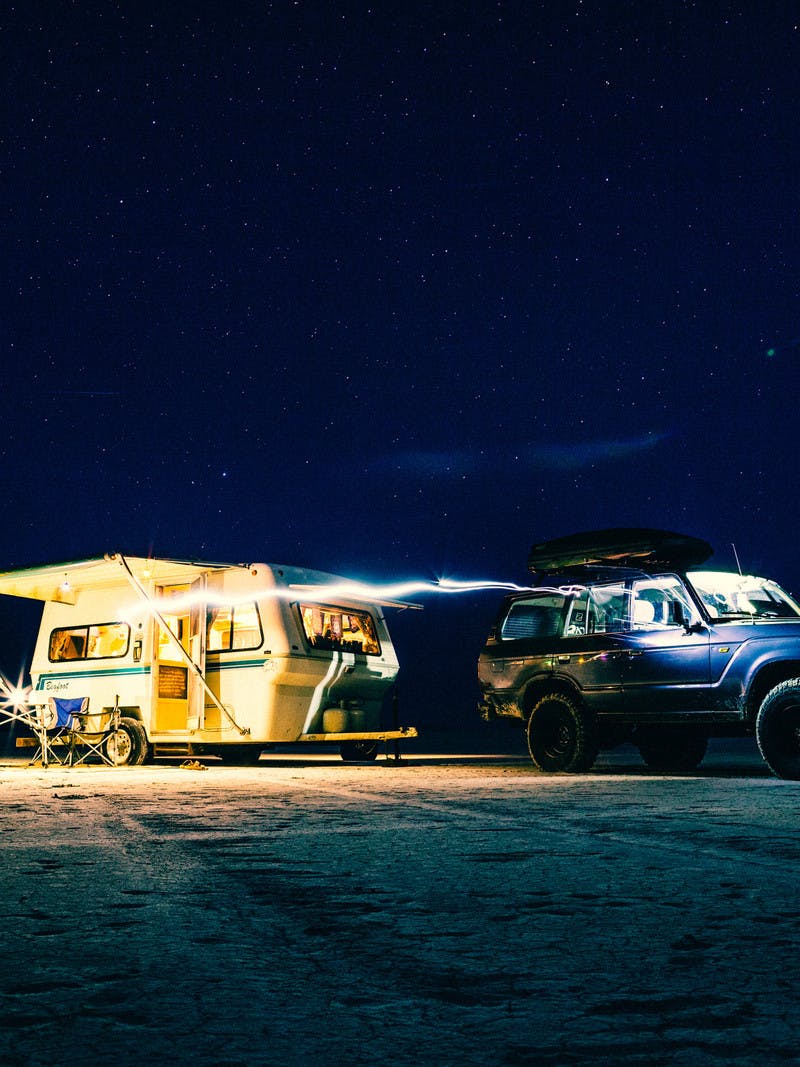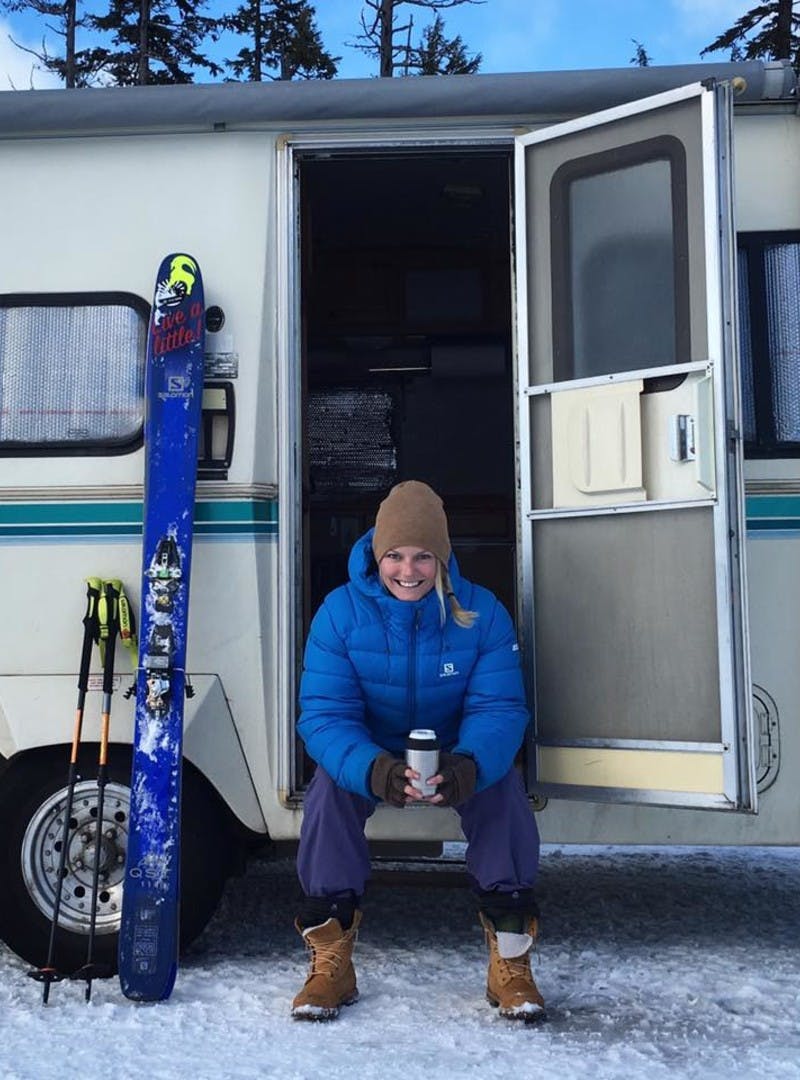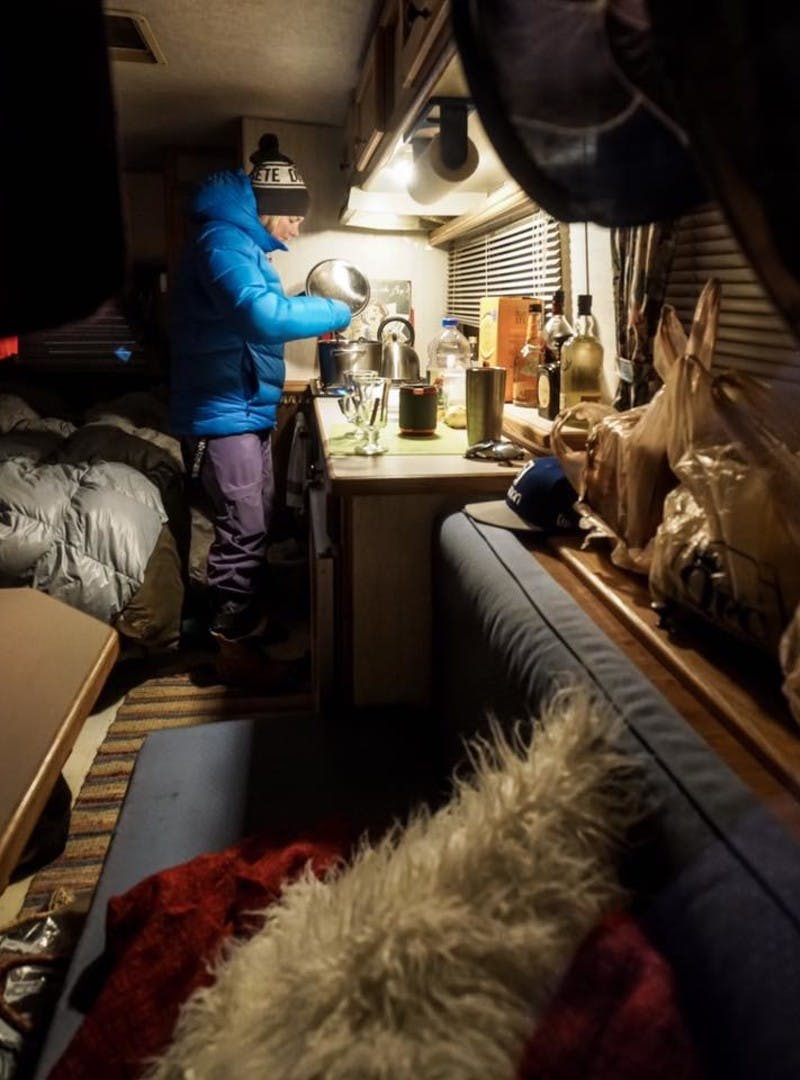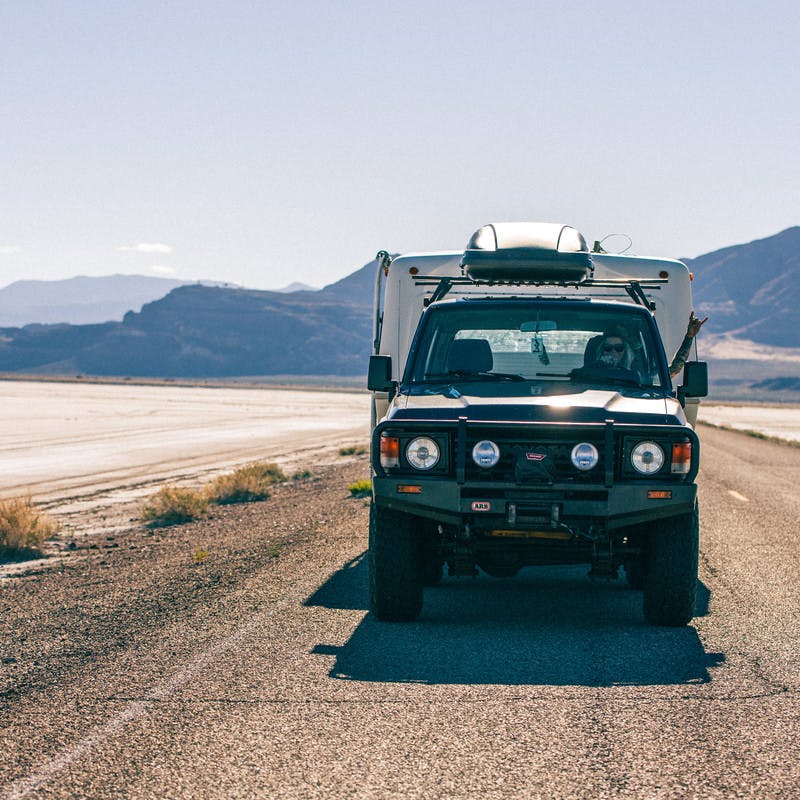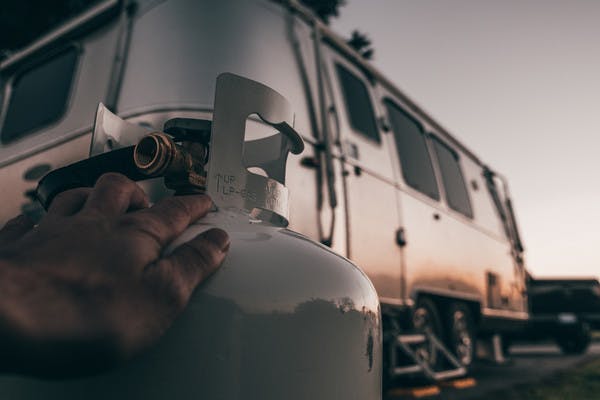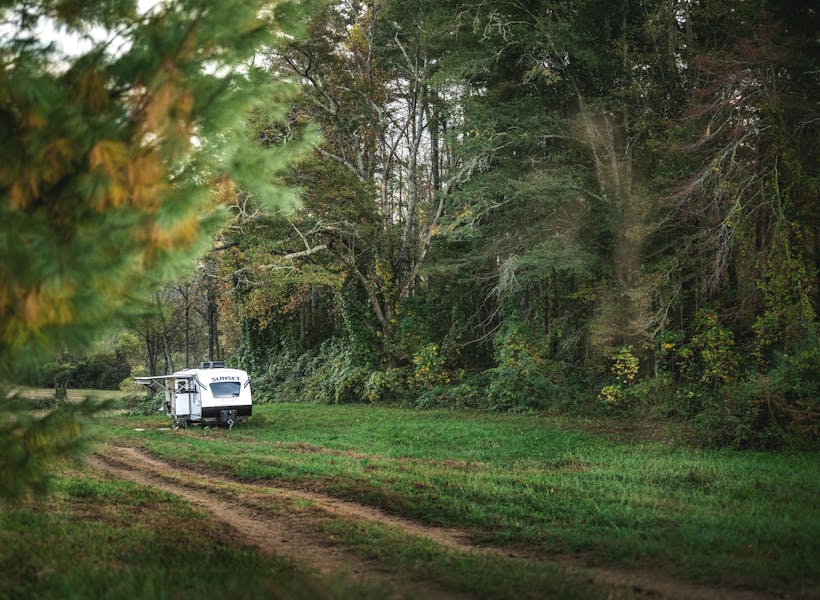I put my Land Cruiser in first and gave it all the gas I could. She started up the hill, momentum in our favor. Then the RPMs dropped, the hollow rumble becoming deeper as we slowed down. Halfway up the hill I came to a full stop then began sliding backwards. I slammed on the brakes, but it was no use. The trailer jackknifed and I was stuck.
Flashback to before I left, telling myself I needed to switch out my mud terrain tires for winter ones, but I had brushed it off, using the excuse of never having a problem in the past to justify the savings.
Now I was stranded, alone, without service, at midnight on New Years Eve with a jackknifed trailer and a daunting hill, laughing at me. It would be one of many lessons I learned in my two years living in a trailer, chasing snow.
And although I eventually pulled my trailer up the hill— with low 4WD and with some serious clutch feathering—now I always follow a few tips.
